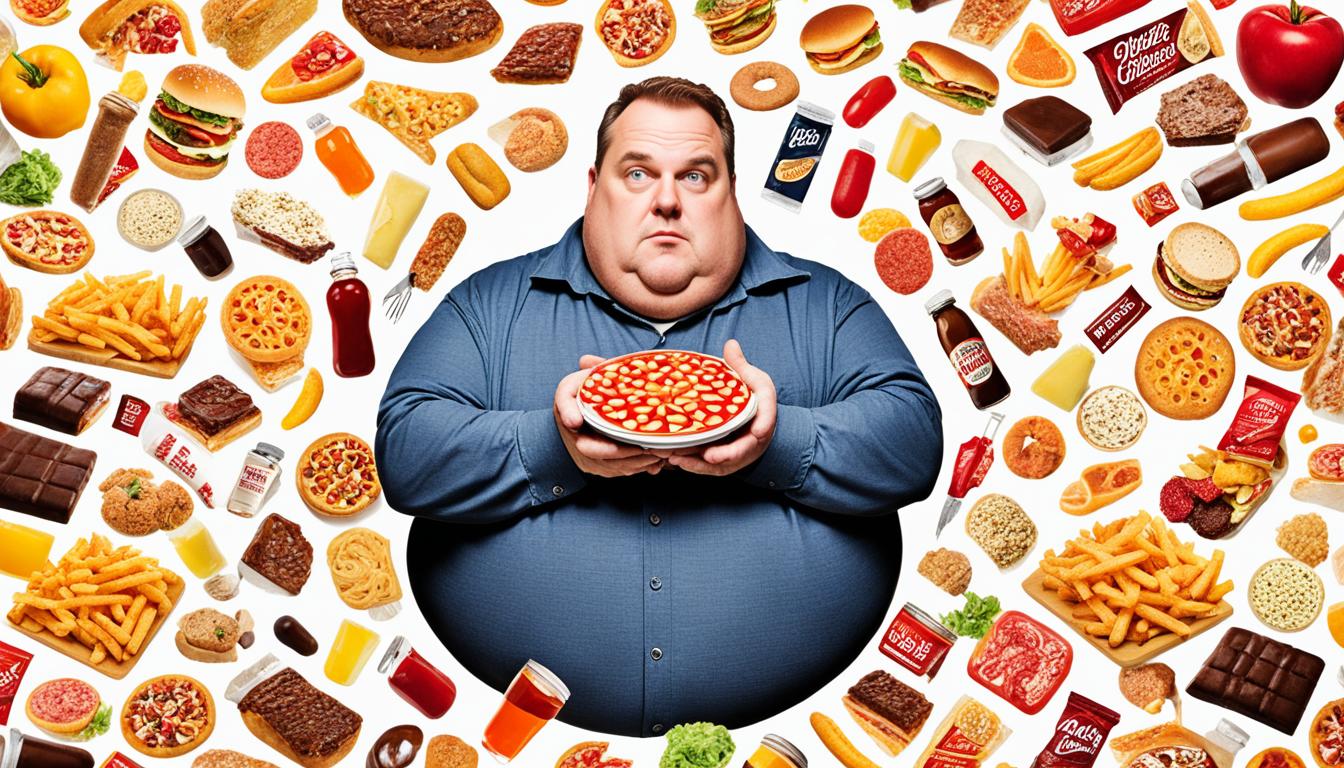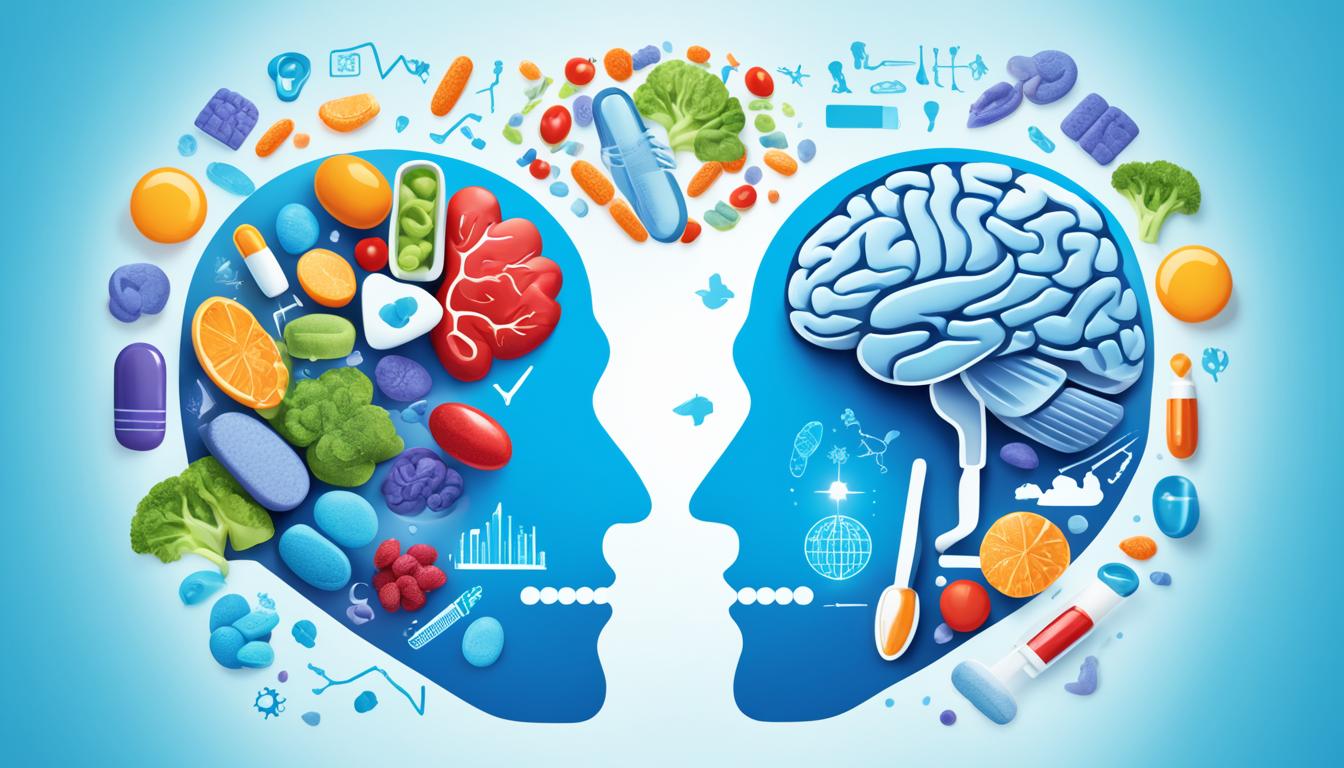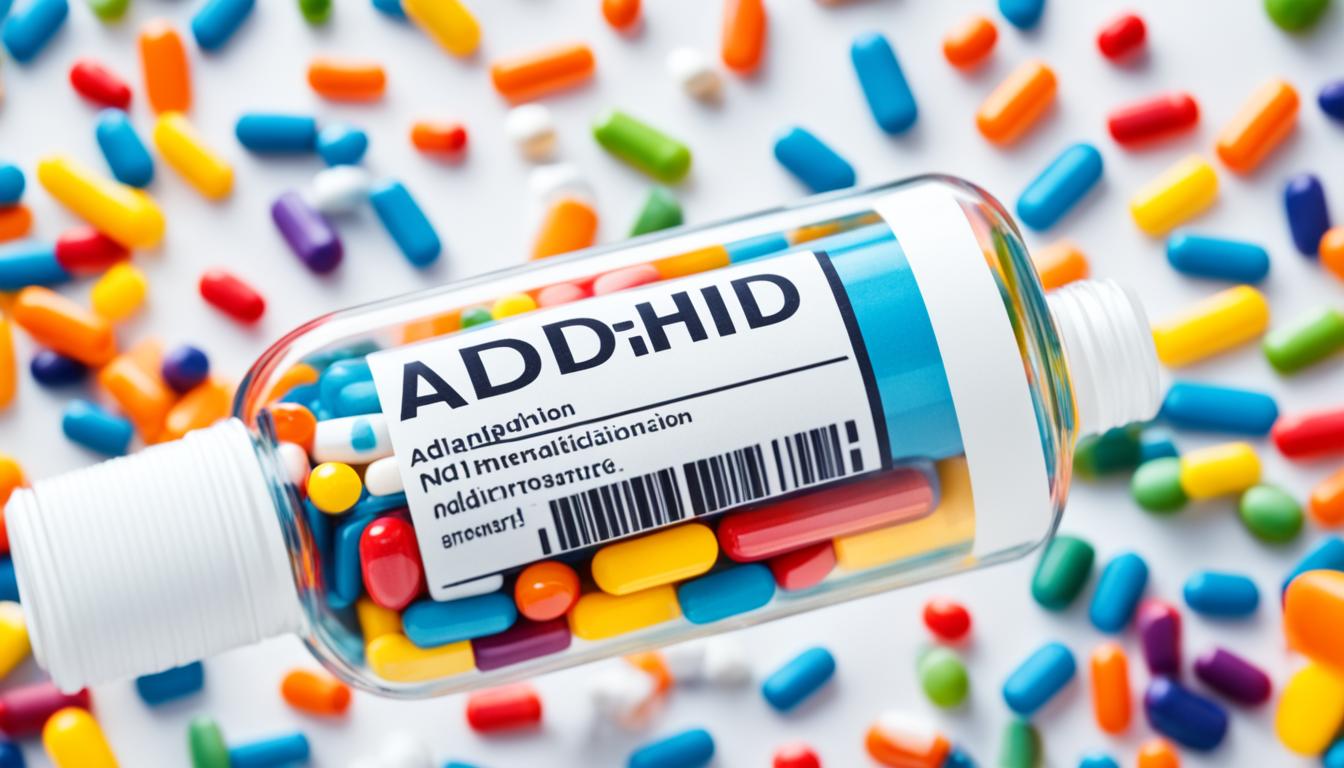Did you know that the consumption of ultra-processed food has been linked to a staggering 32 harmful health effects? That’s right, the food choices we make can have a profound impact on our well-being. The rise in the consumption of ultra-processed foods, such as snacks, sugary drinks, and packaged meals, has raised concerns among researchers and health professionals.
Key Takeaways:
- Ultra-processed foods are associated with a wide range of harmful health effects.
- These effects include an increased risk of obesity, heart disease, diabetes, cancer, and premature death.
- Making informed dietary choices and reducing the consumption of ultra-processed foods is crucial for protecting our well-being.
- Opting for whole, minimally processed foods can improve health and reduce the risks associated with ultra-processed foods.
- We need to be mindful of the impact our food choices have on our health and make conscious decisions to prioritize our well-being.
Understanding Ultra-processed Food
Ultra-processed food encompasses a variety of food products that undergo extensive processing. These foods often contain a wide range of additives, preservatives, and flavorings to enhance taste, texture, and shelf life. Unfortunately, they are also characterized by high levels of sugar, salt, and unhealthy fats, making them nutritionally deficient.
Ultra-processed foods can take the form of snacks, sugary drinks, packaged meals, and fast food items. They are readily available and widely consumed due to their convenience and affordability. However, their frequent consumption has been linked to numerous health issues.
The excessive intake of ultra-processed foods can have detrimental effects on our metabolism, inflammation levels, and gut microbiota. These factors contribute to an increased risk of developing chronic conditions such as obesity, heart disease, diabetes, and certain types of cancers.
It is important to recognize that not all processed foods are created equal. While some processing methods are necessary for food preservation and safety, it is the ultra-processing that poses the greatest concern for our health.
| Ultra-processed Food | Health Impact |
|---|---|
| High levels of sugar | Increased risk of obesity and diabetes |
| Excessive salt | Elevated blood pressure and heart disease |
| Unhealthy fats | Higher risk of obesity and cardiovascular issues |
The consumption of ultra-processed foods not only lacks essential nutrients but also contributes to an unbalanced diet. These foods often displace healthier options, leading to nutrient deficiencies and an imbalance in our overall nutritional intake.
By understanding the impact of ultra-processed food on our health, we can make more informed choices about the food we consume. Opting for whole, minimally processed foods that are rich in nutrients can help promote better overall well-being and reduce the risks associated with the consumption of ultra-processed foods.
Harmful Health Effects of Ultra-processed Food
Research has consistently demonstrated a strong association between the consumption of ultra-processed food and an array of detrimental health outcomes. These include an increased risk of obesity, heart disease, diabetes, cancer, and even premature death.
The regular consumption of ultra-processed foods, which are typically high in unhealthy fats, added sugars, and calories, has been linked to an elevated risk of obesity. These energy-dense foods contribute to weight gain and the accumulation of excess body fat, both of which are major risk factors for a range of health conditions.
Furthermore, a growing body of evidence indicates that ultra-processed foods are associated with an increased likelihood of developing heart disease. These foods often contain high levels of trans fats, saturated fats, and sodium, all of which can contribute to elevated blood pressure, cholesterol levels, and inflammation, leading to cardiovascular complications.
Additionally, the consumption of ultra-processed foods has been strongly linked to an elevated risk of developing diabetes. These highly processed foods are often devoid of essential nutrients and fiber, while being rich in refined carbohydrates and added sugars. This combination can lead to insulin resistance, impaired blood sugar regulation, and ultimately the onset of type 2 diabetes.
Studies have also shown a concerning association between the consumption of ultra-processed foods and an increased risk of various types of cancer. The additives, preservatives, and chemical compounds present in these foods may have carcinogenic properties, promoting the development and progression of cancerous cells in the body.
Lastly, the regular intake of ultra-processed foods has been linked to an elevated likelihood of premature death. The combination of poor dietary quality, high caloric intake, and the negative impact on overall health markers significantly contributes to premature mortality.
“The evidence is clear: the consumption of ultra-processed food is strongly associated with an increased risk of obesity, heart disease, diabetes, cancer, and premature death.”
Given the concerning impact of ultra-processed food on our health, it is essential to prioritize whole, minimally processed foods in our diet. By choosing fresh, nutrient-dense options, we can mitigate the risks associated with ultra-processed food and promote overall well-being.

Factors Contributing to the Harmful Effects of Ultra-processed Food
There are several factors that contribute to the harmful effects of ultra-processed food. Firstly, these foods are often nutrient-poor, lacking essential vitamins, minerals, and fiber. Their consumption can lead to nutrient depletion and imbalances in the diet, affecting overall health and well-being.
Moreover, ultra-processed foods are frequently associated with unhealthy eating patterns. These patterns are characterized by high calorie intake, low nutrient density, and excessive consumption of added sugars, unhealthy fats, and sodium. Such imbalanced diets can increase the risk of obesity, heart disease, and diabetes, further exacerbating the detrimental effects on health.
Furthermore, the addictive nature of ultra-processed foods plays a significant role. These foods are designed to be highly palatable, triggering pleasure centers in the brain and making it difficult for individuals to control their consumption. This addictive nature can lead to overeating and weight gain, contributing to a cycle of unhealthy eating habits.
Additionally, ultra-processed foods often lack satiety, the feeling of fullness or satisfaction after eating. This lack of satiety can result in individuals consuming larger quantities of these foods in search of satisfaction, leading to excessive calorie intake and weight gain over time.

It is crucial to recognize and address these factors to reduce the harmful effects of ultra-processed food. Promoting education and awareness about the importance of nutrient-rich diets, encouraging balanced eating patterns, and addressing the addictive properties of processed foods can help individuals make healthier food choices and improve their overall well-being.
Conclusion
The growing body of evidence clearly underscores the detrimental health effects associated with the consumption of ultra-processed food. To prioritize our well-being, it is essential that we make informed dietary choices, steering away from these unhealthy options. By reducing our intake of ultra-processed foods and embracing whole, minimally processed alternatives, we can proactively safeguard our health.
Making conscious decisions about the foods we consume empowers us to take control of our well-being. Opting for nutrient-rich, natural foods allows us to provide our bodies with the essential vitamins, minerals, and fiber necessary for optimal health. This shift in dietary choices not only helps us mitigate the risks associated with ultra-processed food but also promotes better overall wellness.
Embracing informed decision making extends beyond simply avoiding ultra-processed foods. It involves being mindful of the ingredients and nutritional value of the foods we choose, as well as considering the impact on our physical and mental health. By cultivating a greater sense of awareness and making conscious food choices, we can forge a path towards improved well-being and longevity.
FAQ
What is ultra-processed food?
What are the harmful health effects of ultra-processed food?
Why does ultra-processed food have harmful health effects?
How can I minimize the risks of ultra-processed food?
What should I consider when making dietary choices?
Source Links
- https://www.mdpi.com/2076-3417/14/7/2733
- https://www.independent.co.uk/tv/culture/death-in-paradise-finale-ralf-little-b2518014.html




